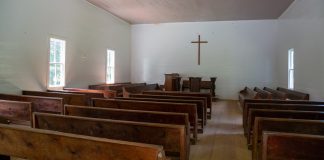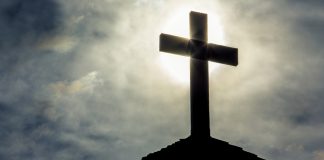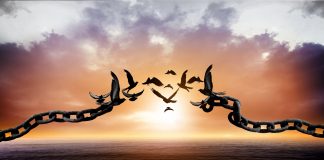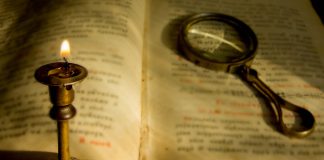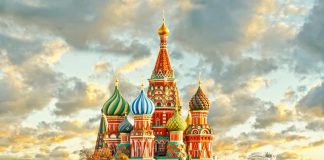How the soul breathes
“We need a bigger vision in prayer. We need God’s vision! Let’s keep praying and daring to ask for more—for God’s glory, that the gospel may go into all the world, into all nations, that Jesus may come!”
Miracles or superstition? | An a posteriori response to the anti-supernaturalist assumption
Up until the Enlightenment, the idea that the miracles recorded in the pages of the Bible happened as the biblical writers described them was widely accepted. With the rationalism of the seventeenth and eighteenth centuries, an alternative theory emerged: that miracles were not possible in naturalistic metaphysics.
What did Jesus believe about Creation?
Perhaps the greatest mystery for Christians is the incarnation of God, described in the words of the apostle John, an eyewitness to the life of Jesus: "The Word became flesh and made his dwelling among us. We have seen His glory, the glory of the only Son, who came from the Father, full of grace and truth" (John 1:14).
The little giant
“Born in a home where the scant necessities of life were luxuries, when he left the world for heavenly scenes of labour, he bequeathed it his possessions–two silver spoons, a silver teapot, a well-worn frock coat the Methodist Church”[1] Basil Miller
Religion is good for you—really?
Religion has often been maligned in both the press and popular culture. But could believing give you an edge in life?
Does God give signs?
In ancient Israel, the high priests wore a vest that had two stones on it called the Urim and Thummim. Whenever a question about God’s will was brought to the priest, he would ask God to give the answer. If the stone on the left glowed, it indicated divine approval. If the stone on the right glowed instead, it indicated God’s disapproval.
Sebastian Castellio
When the Scottish reformer John Knox, Calvin’s disciple, wrote in 1560 in favour of the death penalty for heretics, he was attacking Sebastian Castellio in particular. John Knox did not know then that he was attacking the father of the idea of religious freedom in Christianity.
The face that transforms me
Every time I look through the lens of a microscope, I am struck by the realisation that beyond what the naked eye can see lies a universe far deeper and richer.
How do I know God exists?
You must picture me alone in that room in Magdalen night after night, feeling, whenever my mind lifted even for a second from my work, the steady, unrelenting approach of Him whom I so earnestly desired not to meet. That which I greatly feared had at last come upon me. In the Trinity Term of 1929 I gave in, and admitted that God...
Hope from the pit
Fire falling from the sky. A massive tsunami. An abandoned city. Let’s be real—it’s probably Los Angeles or New York (although sometimes Sydney or Hong Kong makes a cameo). These are the images we most often associate with the end of the world. Whatever comes to mind for you, no doubt it has been shaped in large part by literature, art and, of...
The Second Coming Files: a 2000-Year Inquiry | Part II: Millenarianism as a forgotten orthodoxy
Right from the first centuries, the scenario of the second coming of Jesus was interpreted spiritually-allegorically by some, and politically-ecclesiastically by others. As we have learned from the previous article of this series, even the main millenarian movement in antiquity (Montanism) led to an anti-apocalyptic reaction on the part of moderate Christianity. Is this rejection of apocalyptic millenarianism justified? What does Revelation actually...
How can I be accepted by God?
Imagine the conversation between God and Adam after Adam had sinned, seen himself naked for the first time (in more ways than one) and hidden from God. To the piercing question, "Why did you hide?" Adam replied, "Because I was naked". Reading between the lines, we detect the subtext: "I hid myself, for one cannot come naked before God."
The Second Coming Files: A 2000-Year Inquiry | Part III: Modern Millenarianism
While the historic churches remained at least disinterested in millenarianism, the Apocalypse, and the Parousia—that is to say, when they were not hostile to them—Protestant pluralism allowed for both reluctance[1] and increasingly significant preoccupations with the research and publication of the themes regarding the end of the world.
An American in Moscow: The story of a spiritual transformation
Andrew McChesney knew what he wanted—to be a famous journalist. He thought Moscow would be a good place to learn his craft and make a name for himself, which he did. But his years in Russia shaped his life in a much deeper way—it was there that he discovered God and found new meaning in life.
From Charon’s skiff to the tomb of Lazarus | Part 1
Belief in life after death is present in many religions and cultures and has always been an important aid in accepting the tragic reality of death. However, rather than speaking of the intrinsic immortality of the soul, the Bible speaks of the future resurrection of the dead.















